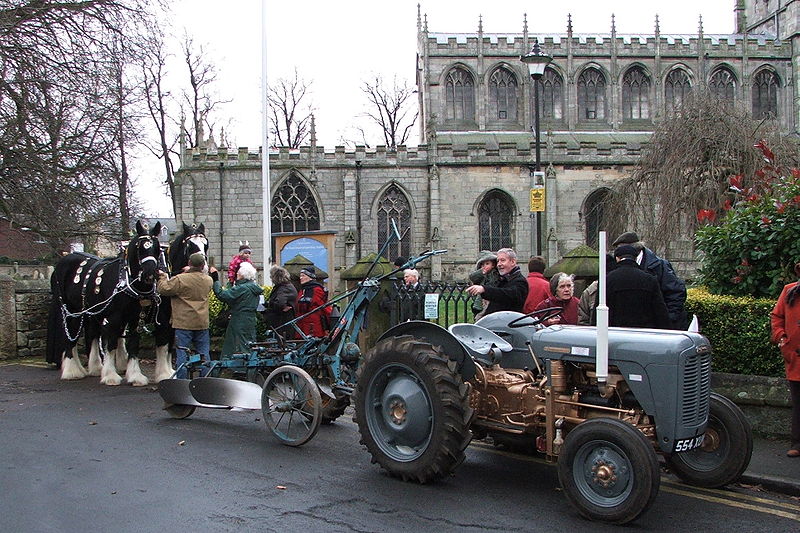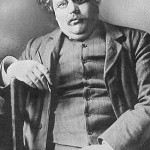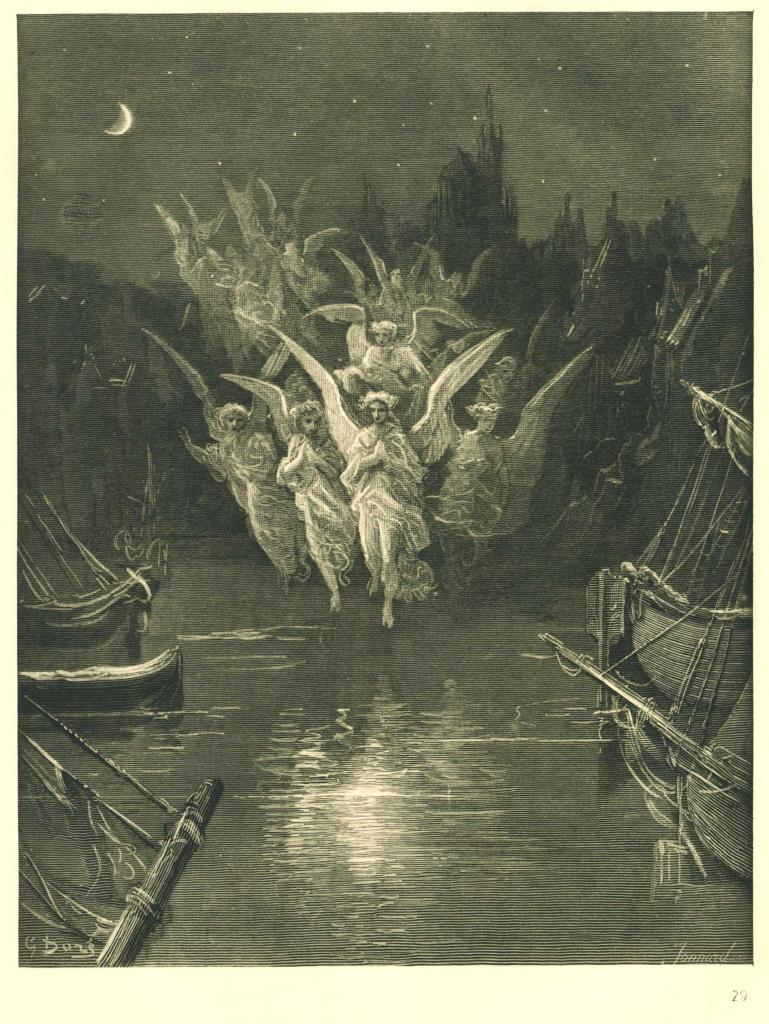David Russell Mosley

Description
Plough Sunday gathering outside a village Church in Tickhill, Yorkshire, Great Britain
Date 11 January 2009
Source Own work
Author John Cowie
(CC BY 3.0)
Eastertide
6 May 2017
The Edge of Elfland
Hudson, New Hampshire
Dear Readers,
Last night I went a party put on by Thomas More College of Liberal Arts. It was what they call a Guilds Night. Thomas More has several guilds that students participate in. Last night we saw performances from the Sacred and Folk Music Guilds as well as art done by the Art Guild. It was a wonderful time, one that proved Belloc’s oft quoted lines:
Wherever the Catholic sun doth shine,
There’s always laughter and good red wine.
At least I’ve always found it so.
Benedicamus Domino!
I had many conversations with friends old and new. One person brought up my recent letters on the Benedict Option. He contrasted it with what we were doing that very evening. Here were a group, largely of Catholics, who weren’t withdrawing from the culture, but, in our own way, engaging in it. We were singing, drinking, lightly carousing and in a house quite near downtown Nashua. Other times of the year, Thomas More invites people who live in the houses surrounding Anderson House––the historic property in which these parties are held––to a Friends and Neighbors Night (which are practically indistinguishable from Guilds Nights. We were being unapologetically Catholic, and yet we were not withdrawn, not cloistered, but open and engaging.
This caused us both to reflect on the nature of the Parish. This is something I’ve written about before, but I love the idea of the Parish, that is the geographic, physical space that surrounds a given church as somehow belongs to that particular church. Now it’s true that I say this as a Catholic who does not actually attend my parish church (in small part because their sign is too small to read the Mass times off of as I drive past it). But I do attend a Parish within walking distance, even if I’ve yet to walk there.
The Parish, however, seems to me the exact right response to all of these questions of withdrawal and engagement. On the one hand, there is no denying that we must gather together as Catholics, as Christians, and do so often, especially––though not exclusively––in divine worship. The church building in a given parish provides us with that. And yet it is not an entirely closed off space. Non-Catholics and non-Christians alike are invited, encouraged, and welcome (or ought to be) to join us in these celebrations. But there’s no denying these are particularly for us (insofar as there even is a distinction between us).
On the other hand, the Parish can and ought to be engaged locally. It’s why I’ve written on numerous occasions about the return of agricultural blessings and liturgies that force both the church out into the culture, and bring the culture into the church. I still get giddy when I think about the blessing of the beer that took place in Croydon last year. Why on earth are we not doing more things like this? These practices get at the heart of Christianity by reminding us that our faith is a material one as well as spiritual. God became man; he became a human being with a human soul and a human will and a human body. This reality not only further sanctifies our own embodied reality, but all of physical creation since all physical creation (and spiritual for that matter) participates in us and fully participates in Christ. One of the reasons I became Catholic is precisely because Catholicism recognizes that physical, material reality is not only important, but good.
This, of course, is also what draws so many to the works of Chesterton, Belloc, McNabb, Berry, and many more besides; they recognize the inherent goodness, the sacramental goodness of creation. And this is why I think the Parish can serve as an appropriate means of engaging with culture while still being different.
Now I recognize that many may have legitimate reasons for not attending their “parish” church. For many, particularly in rural areas, there may not be a “local” parish. And driving has certainly complicated in both good and bad ways what the word parish means and how the idea of it functions. Nevertheless, I think we would do well to choose churches and parishes nearer to home when we can so that our engagement with our faith can also become an engagement with the surrounding culture. Maybe if we were more present in physical places we might be able to effect more change.
Sincerely,
David












